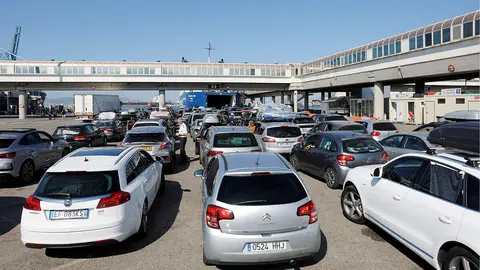Everything you need to know about Operation Marhaba - Crossing the Strait 2024
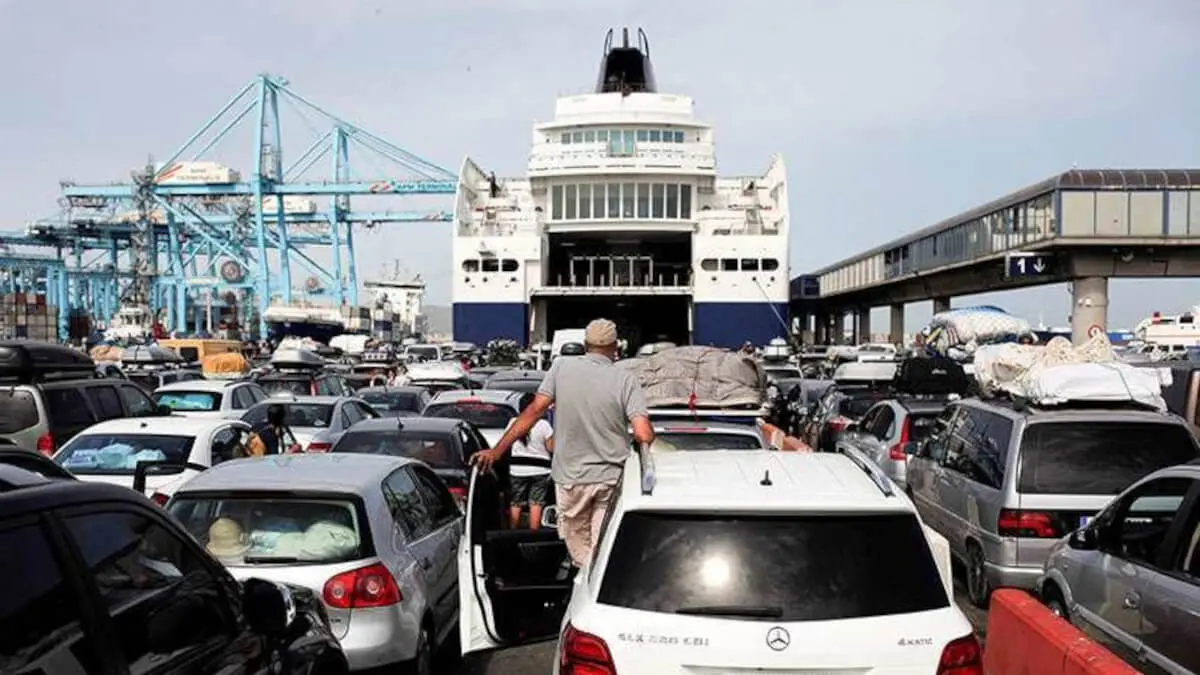
- Requirements and preparations for the OPE
- Contact and support during Operation Marhaba- Crossing the Strait
- Frequently asked questions and advice for Operation Crossing the Straits of Gibraltar
Morocco and Spain are once again coming together to organise Operation Crossing the Strait (OPE), a humanitarian and social assistance operation that is unique in the world. As every summer, millions of people cross the Strait of Gibraltar to Morocco.
France, Italy, Belgium and Spain are the main countries of origin of most Moroccan residents abroad who return to enjoy their holidays with their families.
The possibilities for arriving in Morocco are vast. Morocco, a vast and tourism-focused country, offers numerous entry options for travellers. The two main ones are by plane and ferry, but there are also less common alternatives.

Operation Marhaba-Strait Crossing every year is a major effort for the Moroccan and Spanish authorities. This is due to the more than 3.2 million people who, according to official figures, cross the Strait of Gibraltar during the summer months (June, July, August and September).
Preparations have been underway since the beginning of May, when the Ministry of the Interior, the Spanish-Moroccan Joint Commission, the Civil Guard and the police held a series of meetings to establish protocols and organise all the preparations. The OPE is one of the largest movements of people in the world. For this reason, the security measures and recommendations to citizens must be properly agreed between the different authorities.

Requirements and preparations for the OPE
A trip to Morocco requires a great deal of preparation beforehand. Leaving the European Union is synonymous with leaving the Schengen zone, so the formalities are more demanding. One of the critical points of any trip is the time to identify yourself to the authorities.
Having or not having a visa, having a valid passport or vehicle documents are some of the most common problems when crossing the border into Morocco. To avoid any kind of mishap, make sure to:
-
Have your passport valid for at least 6 months after your planned departure to Morocco.
-
Depending on your country of origin, you may or may not need a visa. If you are travelling from the European Union, the United States, Canada, Australia, New Zealand, Switzerland, Norway and Iceland, you do not need a visa.
-
Travel insurance: you need to have at least one that covers medical care.
-
It is recommended to provide your telephone number to the relevant authorities to facilitate an emergency operation if necessary.
According to VisaGuide.World: One of the most important parts of preparing for a trip abroad is purchasing travel insurance. Getting travel insurance can save you from unnecessary and unexpected financial loss if you have to cancel the trip or from a hefty medical bill that you cannot afford.

In addition, it is advisable, if you are travelling by car or motorhome, to have your car fully serviced. Make sure that your vehicle has travel insurance that covers medical and travel expenses. Check that your vehicle has a valid international vehicle registration certificate and that it is in good condition, especially with regard to the condition of the tyres and the function of the brakes.
Don't forget to take a map and GPS to navigate the country. Make sure you have enough money and credit cards for the trip. Don't forget to carry a basic tool kit and a tyre repair kit.
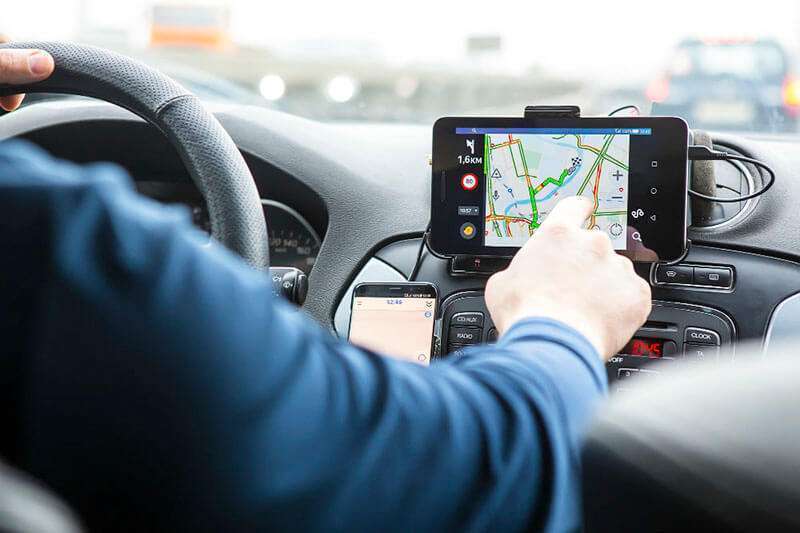
Take a first-aid kit with basic medicines and a first-aid kit - in short, it's important to prepare well before you leave for Morocco. Make sure your vehicle is in good condition, that you have all the necessary documents and permits, and that you have enough luggage and supplies for the trip.
Contact and support during Operation Marhaba- Crossing the Strait
Contact with the authorities is a basic principle for a safe experience.
Airports:
- Agadir Al Massira : +212 6 73 44 45 - Agadir Al Massira Airport, Agadir
- Marrakech: +212 6 73 81 50 04 - Marrakech Airport, Marrakech
- Casablanca Mohammed V: +212 6 73 81 98 22 - Casablanca Mohammed V Airport, Casablanca
- Fez Saiss: +212 6 73 81 64 64 - Fez Saiss Airport, Fez
- Uchda: +212 6 73 81 50 04 - Uchda Airport, Uchda
- Tánger Ibn Battûta: +212 6 73 83 16 70 - Tangier Ibn Battûta Airport, Tangier

Ports:
- Nador Beni Ansar : +212 6 73 74 30 09 - Port of Nador Beni Ansar
- Al Hoceima: +212 6 73 81 35 48 - Port of Al Hoceima
- Tánger: +212 6 73 83 39 38 - Port of Tangier
- Bab Sebta: +212 6 73 74 11 05 - Port of Bab Sebta, Ceuta
- Algeciras: +34 956 65 53 22 - Algeciras Ferry Port
- Motril: +34 632 51 46 70 -Motril Ferry Port
- Almería: +34 631 02 34 42 - Almería Ferry Port
- Séte: +33 75 13 96 87 - Port of Séte
- Génova: +39 10 30 03 80 57 - Génoa Port
Consulates:
- Spanish Consulate in Rabat: +212 05 37 63 63 39 00
- Moroccan Consulate in Algeciras: +34 956 66 18 03
- Moroccan Consulate in Almeria: +34 950 20 69 86
- Moroccan Consulate in Seville: +34 954 08 10 44
- Moroccan Consulate in Valencia: +34 963 68 66 66 56
- Moroccan Consulate in Majorca: +34 971 20 16 16 12
- Moroccan Consulate in Madrid: +34 912 10 93 00
- Moroccan Consulate in Tarragona: +34 977 54 58 84
- Moroccan Consulate in Barcelona: +34 93 289 25 30
- Moroccan Consulate in Bilbao: +34 94 607 21 76
- Moroccan Consulate in Toulouse: +33 562 47 10 47
- Moroccan Consulate in Montpellier: +33 467 06 88 30
- Moroccan Consulate in Marseille: +33 491 50 02 96
- Moroccan Consulate in Bordeaux: +33 556 02 42 21
- Moroccan Consulate in Lyon: +33 472 36 96 96 17
- Moroccan Consulate in Rennes: +33 299 27 54 00
It also provides telephone assistance, monitors the operation on a daily basis and ensures that all requests are properly handled. Marhaba's telephone assistance service is available 7 days a week, 24 hours a day, for the duration of the entire operation, on the following telephone numbers:

Throughout the operation, a team of 1,400 people will be mobilised,’ said the Mohamed V Foundation, specifying that they were members of the Foundation, social workers, doctors, nurses and volunteers, who were responsible for caring, helping, accompanying and providing the necessary support.
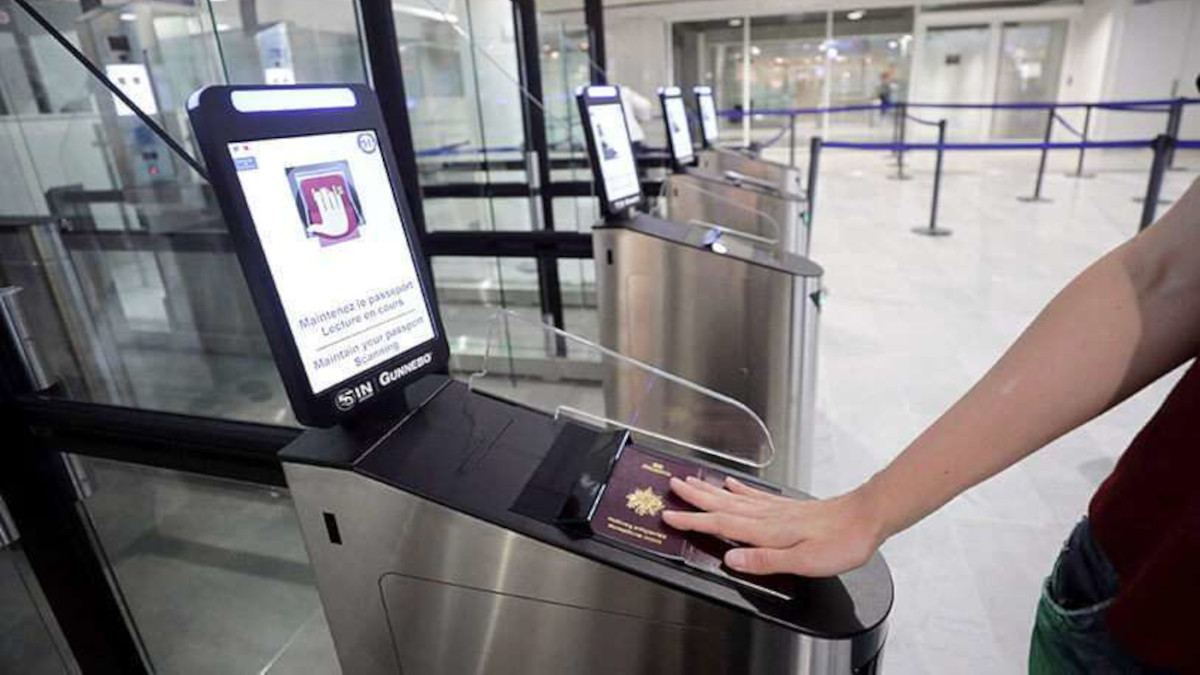
Frequently asked questions and advice for Operation Crossing the Straits of Gibraltar
FAQ, Additional Resources and Recommendations. Solve your doubts with our FAQ section. Access additional resources and get practical advice for a safe and smooth journey. Frequently Asked Questions (FAQ):
Question: What is Operation Crossing the Strait?
Answer: The OPE is a maritime control and security project operating in the Strait of Gibraltar, which separates the Iberian Peninsula from Africa.
Q: What documents should I bring as a passenger?
A: As a passenger, you must bring a valid ID card and passport.
Q: What happens if I don't have all the necessary documents?
A: If you do not have all the required documents, you will not be allowed to board the plane. Remember that OPE's objective is to ensure the safety and efficiency of maritime transport.
Q: What happens if my ship is stopped in the strait?
A: If your ship is stopped in the channel, it may be due to a breach of regulations or a paperwork problem. In this case, it is important to contact the relevant authorities for more information and to resolve the problem as soon as possible.
Q: What happens if there is a problem in the Strait?
A: If you have a problem in the Strait, such as an accident or a health problem, it is important to contact the relevant authorities or the emergency hotline for help and support.
Q: What happens if my journey is delayed?
A: If your trip is delayed, it is important that you call the emergency number or authorities to get more information and resolve the problem as soon as possible.
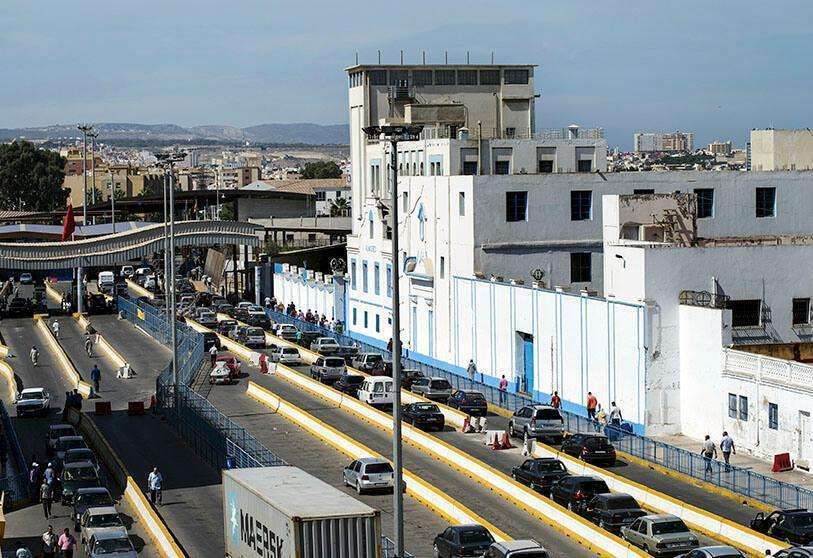
Before you travel, make sure you have all the necessary documents. Check maritime traffic conditions before landing. In case of problems, maintain regular contact with the relevant authorities. Make sure you have travel insurance to cover any unforeseen events.
Among the relevant authorities you can contact: Directorate General of National Security, Royal Gendarmerie, Customs and Indirect Taxes Administration, Directorate of the Merchant Navy, National Ports Agency, National Airports Office, Royal Air Maroc, National Railways Office, the Moroccan National Motorways Office, Agencies and organisations, Tangier Mediterranean Special Agency and Shipping Companies, the Guardia Civil and the Police.
For more information, please consult the Mohamed V Foundation website: https://www.fm5.ma/es

